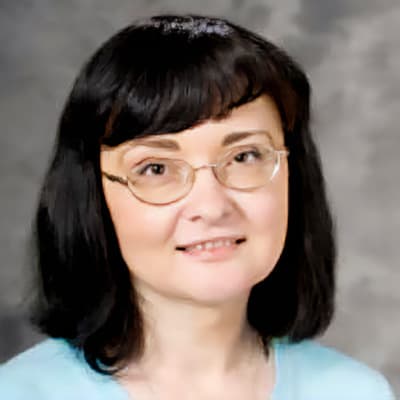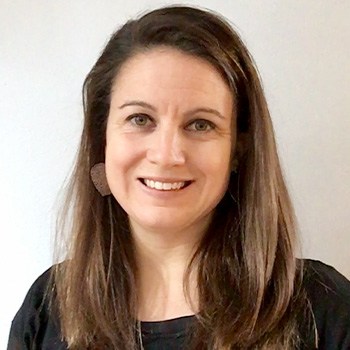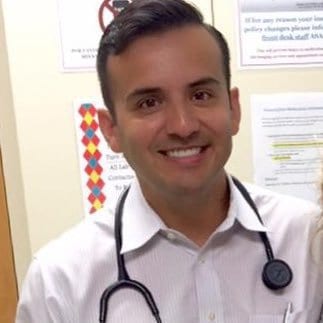Continuing Medical Education
Past and upcoming CME hosted by Neuroimmune Foundation
Please note: CME credit is not currently available for all past events.
Join us for a two day conference via webinar!
Inflammatory Brain Disorders Conference 2024
The 2024 Inflammatory Brain Disorders Conference has been planned by the same individuals as the 2021, 2022, and 2023 Inflammatory Brain Disorders Conferences and is being hosted by our sister organization, Neuroimmune Institute, in partnership with Neuroimmune Foundation and with our Stanford and UCSF collaborators. Neuroimmune Institute was founded with the goal of rapidly advancing clinical medicine and research focused on immunopsychiatric, neuroimmune, and inflammatory brain conditions as well as autism.

Our Expert Case Consultation Panel meets monthly and is an opportunity for physicians to consult face- to-face virtually with experts in the field.
Past CME Events

Jennifer Frankovich, MD
Rheumatology & Psychiatry – What We Can Learn From Overlapping Conditions
Learning Objectives:
- Recognize rheumatic conditions that overlap with psychiatric disease
- Describe a few clinical evaluation pearls or clues that the child has a rheumatic conditions
- Understand general approach to treatment
Jennifer Frankovich, MD
Clinical Professor of Pediatrics, Rheumatology; Director of PANS Research Program – Stanford University School of Medicine
Dr. Frankovich is an Associate Clinical Professor in the Department of Pediatrics, Division of Allergy, Immunology Rheumatology (AIR) at Stanford University/Lucile Packard Children’s Hospital (LPCH). Her clinical expertise is in systemic inflammatory and autoimmune diseases that co-occur with psychiatric symptoms. She completed her training in pediatrics, pediatric rheumatology, and clinical epidemiology at Stanford University/LPCH. She directs the Stanford PANS Program (2012–present) where she and her collaborators have created a longitudinal clinical database and large biorepository of patient and control biospecimens. In addition to generating clinical data to better understand the PANS illness, she is collaborating with 10 basic science labs who aim to understand the immunological underpinnings of the illness.
Jennifer Frankovich, MD
Rheumatology & Psychiatry – What We Can Learn From Overlapping Conditions

Hrissanthi (Chris) Ikonomidou, MD, PhD
A Neurologist’s Perspective on PANS: Case Studies
Dr. Ikonomidou will review severe presentations of PANDAS/PANS in children and will also review treatments and therapeutic responses in severe cases of PANDAS/PANS.
Hrissanthi (Chris) Ikonomidou, MD, PhD
Chief, Section of Pediatric Neurology, University of Wisconsin American Family Children’s Hospital Faculty – University of Wisconsin School of Medicine and Public Health
Dr. Hrissanthi (Chris) Ikonomidou is a Child Neurologist and physician researcher with expertise in neurodegenerative and neurodevelopmental disorders. She is the Division Chief of Pediatric Neurology at the University of Wisconsin Madison and American Family Children’s Hospital. She received her MD and PhD degrees from the University of Goettingen in Germany. She completed her residency and Pediatric Neurology fellowship at Washington University in St Louis and holds board certification in Neurology with Special Qualification in Child Neurology and UCNS certification in Headache. Dr Ikonomidou and her team discovered that imbalance between excitatory and inhibitory signals in the developing brain can lead to brain injuries and subsequent neurologic, cognitive, and mental disabilities. Several pediatric drugs, including sedatives, anesthetics and anticonvulsants, utilize these mechanisms to elicit their therapeutic effects and bear the potential to cause brain injury during critical periods of brain development. Her current research aims to investigate ways to prevent neurotoxicity of these classes of medications in infants and children. Her second research focus entails adverse effects of cancer chemotherapy agents on the developing central nervous system. She has authored over 140 peer reviewed publications and book chapters and serves on several editorial boards of scientific journals.
Hrissanthi (Chris) Ikonomidou, MD, PhD
A Neurologist’s Perspective on PANS: Case Studies

Chris Pittenger, MD, PhD
Antibodies in Children With PANDAS Bind To And Inhibit Specific Interneurons In The Basal Ganglia
Learning Objectives:
- To appreciate recent data suggesting that antibodies from children with PANDAS can bind to and inhibit specific interneurons in the basal ganglia
- To appreciate how dysregulation of interneurons in the basal ganglia may contribute to the development of symptoms in PANDAS
Chris Pittenger, MD, PhD
Professor of Psychiatry – Yale University
Chris Pittenger earned his MD and Ph.D. degrees from Columbia University, where his graduate work was done with Nobel Prize recipient Eric Kandel. He returned to Yale University, his undergraduate alma mater, for residency and research training in psychiatry in 2003. He joined the faculty as an Assistant Professor in 2007 and is now a tenured Associate Professor and Assistant Chair for Translational Research in the Department of Psychiatry .
During his Ph.D. studies in basic neurobiology, he became fascinated by the brain’s ability to go on autopilot — to perform complex series of actions or thoughts, after sufficient rehearsal, with almost no conscious effort. Then, during his clinical training, he recognized how this process, when disrupted by disease, can lead to the maladaptive and disruptive automaticity seen in many neuropsychiatric disorders. His research, both with patients and in animal models, aims to elucidate the mechanisms of learned automatic behaviors and to better understand the consequences when they go awry, with the ultimate goal of developing new understandings and better treatments for a variety of neuropsychiatric conditions.
Dr. Pittenger’s research and clinical work have been acknowledged by a number of prestigious awards, including grant funding from the National Institute of Mental Health, the National Institute of Neurological Disease and Stroke, NARSAD, the Tourette Syndrome of America, the Doris Duke Charitable Trust, and other organizations. He has won a number of honorific awards, including from the National Institute of Mental Health, the Society for Neuroscience, the American College of Neuropsychopharmacology, the American Psychiatric Association, and the American College of Psychiatrists. He is a member of the Scientific Advisory Board of the International OCD Foundation and Chair of both their Grant Review Committee and their Annual Research Symposium Planning Committee. He is a Fellow of the American College of Neuropsychopharmacology, the American Psychiatric Association, and the American Neurological Association.
Chris Pittenger, MD, PhD
Antibodies in Children with PANDAS Bind to and Inhibit Specific Interneurons in the Basal Ganglia

Cynthia Kapphahn, MD, MPH
Disordered Eating in PANS
Learning Objectives:
- Recognize that eating restriction is common in PANS/PANDAS
- Identify the common reasons children and adolescents with PAN/PANDAS restrict intake
- List four factors associated with increased risk of medical instability from restricted intake in PANS/PANDAS the approach to managing eating issues in children and adolescents with PANS/PANDAS.
Cynthia Kapphahn, MD, MPH
Medical Director, Eating Disorders Program Lucile Packard Children’s Hospital, Stanford Clinical Professor, Division of Adolescent Medicine Stanford University School of Medicine
Dr. Kapphahn is a Clinical Professor in the Division of Adolescent Medicine at Stanford University School of Medicine. She is Medical Director of the Eating Disorders Program at Stanford Medicine Children’s Health, which specializes in the treatment of adolescents and young adults with eating disorders. She completed medical training at Yale Medical School, a pediatric residency at the Johns Hopkins Hospital, and an adolescent medicine fellowship at the University of California, San Francisco. She received a master’s degree in Public Health and Policy from Johns Hopkins University. In addition to her clinical and administrative responsibilities, she is involved in research regarding eating disorders, medical complications, and care outcomes, and has a special interest in Avoidant Restrictive Food Intake Disorder (ARFID). She is a member of the National Eating Disorders Quality Improvement Research Collaborative and has served as Chairman of the Society for Adolescent Health and Medicine’s Eating Disorder Clinical Committee.
Cynthia Kapphahn, MD, MPH
Disordered Eating in PANS

Elizabeth Mellins, MD
Monocyte Research in PANS
Learning Objectives:
- To be aware of the heterogeneity of human monocytes, particularly during chronic inflammation
- To become familiar with the monocyte subsets associated with PANS
- To appreciate the differences in monocyte subset frequencies in different PANS clinical subgroups
Elizabeth Mellins, MD
Professor of Pediatrics, Pediatric Rheumatologist and Molecular Immunologist – Stanford University School of Medicine
Dr. Elizabeth Mellins is a Pediatric Rheumatologist and a Molecular Immunologist at Stanford University School of Medicine. She has focused her career on laboratory-based research on normal and disease-causing immune responses, including those in PANS. She received her MD degree at Harvard Medical School and completed a Pediatric residency at the University of Colorado and the University of Washington. She did a fellowship in Pediatric Rheumatology followed by a research fellowship in Immunology, both at the University of Washington. She holds board certifications in General Pediatrics and Pediatric Rheumatology. After being an Assistant Professor at the University of Pennsylvania, she moved to Stanford, where she is now a full Professor. She has served on the NIH Cellular and Molecular Immunology study section and has received research funding from the NIH, the Arthritis Foundation and other foundations, and several pharmaceutical companies. She has authored over 165 peer-reviewed publications and is an editor of the premier textbook in Pediatric Rheumatology. She was the founder and first Chairperson of the Childhood Arthritis and Rheumatology Research Alliance, an organization that now includes almost all Pediatric Rheumatology Divisions in the US and Canada. She is a Distinguished Fellow of the American Association of Immunologists. Dr. Mellins is committed to training young investigators and has received several mentoring awards.
Elizabeth Mellins, MD
Monocyte Research in PANS

Lawrence Steinman, MD
Does Molecular Mimicry Explain Epidemiology Linking EBV & MS? Oligoclonal Antibody in MS Cerebrospinal Fluid Binds EBNA-1 and GlialCAM
Dr. Steinman’s presentation will integrate new papers linking multiple sclerosis to viral infection and autoimmunity. How to capture the molecular characteristics of the immune response in the brain will be described, using technologies that allow clarity at a single cell level.
Lawrence Steinman, MD
Professor of Neurology and Pediatrics – Stanford University School of Medicine
Dr. Lawrence Steinman is Professor of Neurology, Neurological Sciences and Pediatrics at Stanford University. He was Chair of the Stanford Program in Immunology from 2001 to 2011. His research focuses on what provokes relapses and remissions in multiple sclerosis (MS), and on the quest for antigen specific therapy in autoimmune disease. Steinman was senior author on the 1992 Nature article that led to the drug Tysabri, approved for MS and Crohn’s disease. He is currently applying insights from Tysabri to develop new therapies for neurodegenerative diseases, aimed at blocking macrophages and microglia from eating neurons and axons “in danger.” Dr. Steinman graduated from Dartmouth College, Magna Cum Laude in Physics. His MD is from Harvard Medical School. He was a post-doctoral fellow in chemical immunology at the Weizmann Institute of Science. After neurology residency, he remained on the faculty in 1980. He has received numerous honors, including the John M. Dystel Prize in 2004, the Javits Neuroscience Investigator Award from the NINDS twice, the Charcot Prize in MS research, and the Cerami Prize in Translational Medicine. Dr. Steinman is a member of the National Academy of Sciences, and the National Academy of Medicine. Dr. Steinman cofounded several biotech companies, including Neurocrine, Atreca, 180 Life Sciences, 5 Integrin LLC, and Pasithea. He was a Director of Centocor from 1988 until its sale to Johnson and Johnson. He is a Director of BioAtla, an immune-oncology company, co-Executive Chair of 180 Life Sciences, and Executive Chair of Pasithea.
Lawrence Steinman, MD
Does Molecular Mimicry Explain Epidemiology Linking EBV & MS? …

Jonas Bergquist, MD, PhD
Chronic Fatigue Syndrome / Myalgic Encephalomyelitis
The presence of autoantibodies in circulation, in peripheral body fluids and tissues but also in central nervous system involved in complex neurological, neurodegenerative, and post-viral neuroinflammatory processes have recently been explored as part of the pathophysiological processes. In this lecture we will look at a few examples including the post-viral consequences of herpes simplex encephalopathies, myalgic encephalomyelitis and post-covid. We will also focus a bit on the similarities and differences between the pathophysiological processes.
Jonas Bergquist, MD, PhD
Professor in Analytical Chemistry and Neurochemistry in the Department of Chemistry at Uppsala University, Sweden; Adjunct Professor in Pathology at the University of Utah School of Medicine; Distinguished Professor in Precision Medicine at Binzhou Medical University in Yantai, China
Professor Dr. Jonas Bergquist, MD, PhD, is Full Chair Professor in Analytical Chemistry and Neurochemistry at the Biomedical Centre, Department of Chemistry at Uppsala University, Sweden, Adjunct Professor in Pathology at the Department of Pathology, School of Medicine, University of Utah, USA, and Distinguished Professor in Precision Medicine, Binzhou Medical University, Yantai, China. He is also the director of the clinical collaborative research centre in Uppsala (together with Harvard Medical School, Stanford University, Montreal and Melbourne) with focus on myalgic encephalomyelitis (ME). Professor Bergquist’s group is continuously developing general analytical tools for molecular diagnostic screening and discovery of biomarkers of pathological states.
Technologies include all important links: identifying relevant clinical applications, invasive in-situ sampling of complex samples, advanced sample pretreatment, multidimensional liquid-based separation, high resolution mass spectrometry, and multivariate data analysis. Professor Bergquist among other things focus to explore the neuroimmunological involvement in neurodegenerative diseases by using proteomics and metabolomics with a special interest in cerebrospinal fluid and hard-to-reach tissue studies. Professor Bergquist has currently published over 540 papers, with around 11 000–15 000 citations (h-index of 57 in Web of Science and 69 in Google Scholar).
Jonas Bergquist, MD, PhD
Chronic Fatigue Syndrome / Myalgic Encephalomyelitis

Sean Pittock, MD
GAD65 Neurological Autoimmunity
In 1956, Moersch and Woltman identified a syndrome they termed stiff-man (now termed person) syndrome (SPS). In 1988, Solimena and colleagues recognized that SMS was an autoimmune disorder associated with antibodies to glutamic acid decarboxylase-65 (GAD65). Antibodies targeting GAD65 are a biomarker of type 1 diabetes mellitus (T1DM), but at low titers they lack clinical specificity for autoimmune neurological disease. In contrast, high-titer GAD65 antibodies, over 1000-fold higher than the upper limit of normal, confer high clinical specificity for GAD65 neurological autoimmunity. SPS was determined to be a prototypical presentation of GAD65 neurological autoimmunity, however it is now recognized that nearly half of patients lack an SPS phenotype. SPS, cerebellar ataxia, epilepsy, and limbic encephalitis may all occur in isolation, and these are considered the primary disease manifestations of GAD65-neurological autoimmunity. Many patients have overlapping phenotypes with multifocal manifestations that also can include cognitive impairment, brainstem dysfunction and myelopathy. Psychiatric symptoms especially anxiety is common. SPS is the most immunotherapy-responsive presentation, while epilepsy is least immunotherapy-responsive. Complete response to immunotherapy is rare.
Sean Pittock, MD
Director, Center for Multiple Sclerosis and Autoimmune Neurology, Mayo Clinic Neuroimmunology Research Laboratory, Mayo Clinic
Dr. Sean Pittock is Professor of Neurology, Director of the Neuroimmunology Laboratory and the Center for MS and Autoimmune Neurology at the Mayo Clinic. His expertise is in the laboratory and clinic-based diagnosis and management of immune mediated neurological disorders. In 2006, he set up the Autoimmune Neurology Clinic at the Mayo Clinic, the first dedicated clinic of its type in the USA. This clinic provides a multidisciplinary approach to the evaluation and treatment of patients with a broad range of autoimmune neurological disorders. He is the co-founder of the Autoimmune Neurology Section at the American Academy of Neurology and currently serves as its Chair. His research is translational and is focused on 1) the identification of novel biomarkers of autoimmune neurological diseases. His group discovered antibodies targeting AQP4, GFAP, MAP1B-IgG, KELCH11, NIF, PDE10 and CRMP5; 2) the clinical application of laboratory-based tests in diagnosis and outcome prediction for patients with
autoimmune and paraneoplastic neurological disorders; 3) optimizing the clinical management of autoimmune and paraneoplastic neurological disorders. He has published 325 peer reviewed papers.
The Neuroimmunology Laboratory tests sera and CSF from approximately 200,000 patients for comprehensive neural antibody profiles (CAP and New York State certified) pertinent to encephalopathy, epilepsy, myasthenia gravis, and CNS inflammatory demyelinating disorders including neuromyelitis optica. His recent work has focused on Phase 3 immunotherapy trials for patients with autoimmune epilepsies and CNS demyelinating disorders (targets include LGI1 and AQP4). This unique translational practice, extending the laboratory’s serologic findings directly to the bedside, has allowed the creation of diagnostic decision trees which will optimize triaging of such patients for further phenotype analysis and biomarker discovery.
Sean Pittock, MD
GAD65 Neurological Autoimmunity

Sameer Sheth, MD, PhD
Neuromodulation for Psychiatric Disorders
Dr. Sheth will review the history and development of neurosurgery for psychiatric disorders, focusing on neuromodulation therapies like DBS. In particular, he will discuss DBS for severe, treatment resistant depression and will cover the current state of this therapy and future directions of research.
Sameer Sheth, MD, PhD
Associate Professor of Neurosurgery, Psychiatry & Behavioral Sciences, and Neuroscience, Baylor College of Medicine; Cullen Foundation Endowed Chair, Baylor College of Medicine
Dr. Sameer Sheth is currently Associate Professor, Cullen Foundation Endowed Chair, Vice-Chair of Research, and McNair Scholar in the Department of Neurosurgery, Baylor College of Medicine, Houston, TX. He also holds joint appointments in the Department of Neuroscience and Department of Psychiatry & Behavioral Sciences at Baylor, and is an Adjunct Associate Professor in the Department of Electrical and Computer Engineering at Rice University. Dr. Sheth received his bachelor’s degree in Physics and Astronomy at Harvard University Summa Cum Laude before earning his MD and PhD from the University of California Los Angeles.
Dr. Sheth completed his residency and a fellowship in stereotactic and functional neurosurgery at the Massachusetts General Hospital and Harvard Medical School. Clinically, Dr. Sheth specializes in stereotactic/functional neurosurgery, including the surgical treatment of movement disorders, epilepsy, and psychiatric disorders. He employs a combination of stereotactic and traditional open surgical techniques, including deep brain stimulation (DBS), neuromodulation, laser ablation, radiosurgery, and microsurgery.
Dr. Sheth’s research focuses on cognitive neurophysiology, often using opportunities derived from his clinical work. He studies higher order human cognitive processes, including decision making and emotional regulation, using intracranial electrophysiological recordings and advanced imaging techniques. His lab also strives to improve neuromodulatory treatments for neurological and psychiatric disorders, including depression and dementias, using innovative surgical techniques.
Sameer Sheth, MD, PhD
Neuromodulation for Psychiatric Disorders

Michael Wilson, MD
Autoimmune and Infectious Encephalitis
Dr. Wilson will review the tools for differentiating between infectious and autoimmune causes of encephalitis and what they do to identify autoantibody targets in patients with autoimmune encephalitis.
Michael Wilson, MD
Distinguished Professor of Neurology at University of California, San Francisco (UCSF); Neurologist, UCSF Weill Institute for Neurosciences, Department of Neurology
Dr. Michael Wilson is a Debbie and Andy Rachleff Distinguished Professor of Neurology and an Associate Professor in the UCSF Department of Neurology and Weill Institute of Neurosciences. He is a neurologist specializing in infectious and autoimmune diseases of the central nervous system. He sees patients with autoimmune diseases like multiple sclerosis as well as patients with a wide array of infectious diseases that impact the nervous system like HIV, neurocysticercosis, neurosyphilis, viral encephalitis and fungal infections like coccidiomycosis (valley fever). His laboratory uses metagenomic and immune repertoire sequencing techniques as well as phage display technologies to enhance understanding of the causes and immunopathogenesis of multiple sclerosis as well as autoimmune and infectious causes of meningoencephalitis.
Michael Wilson, MD
Autoimmune and Infectious Encephalitis

Sarkis Mazmanian, PhD
Development of Microbiome-Based Therapeutics for Autism
The gut microbiome has been associated with effects on the brain. We have recently shown that engineering bacteria to selectively produce microbial metabolites in the gut of mice led to changes in brain activity, functional and structural connectivity in brain regions linked to emotional behavior, as well as gene expression signatures of altered oligodendrocyte function. Indeed, production of gut-derived molecules by the microbiome is associated with increased proportions of immature oligodendrocytes in mice and, accordingly, decreased myelination of neuronal axons in the brain. Furthermore, mice exposed to 4EPS display anxiety-like behaviors, reduced social activity and decreased vocalization. Thus, molecules from the gut microbiome can impact complex behaviors.
Sarkis Mazmanian, PhD
Luis B. and Nelly Soux Professor of Microbiology, Caltech; Investigator, Heritage Medical Research Institute
Dr. Sarkis Mazmanian is the Luis B. and Nelly Soux Professor of Microbiology in the Division of Biology & Biological Engineering at the California Institute of Technology (Caltech). He is a Phi Beta Kappa graduate from the University of California, Los Angeles, where Dr. Mazmanian also received his doctoral training in microbiology and immunology studying the mechanism by which Gram-positive pathogens anchor surface protein adhesins during bacterial infection. He was a Helen Hay Whitney Post-doctoral Fellow at Harvard Medical School where he studied how symbiotic bacteria promote healthy maturation of the immune system. He was promoted to assistant professor at Harvard Medical School in 2006, and later that year moved to Caltech to start his independent laboratory. Dr. Mazmanian has won numerous awards including a Searle Scholar, Young Investigator of the Year at Harvard Medical School, Damon Runyon Innovation Award, was named by Discover Magazine as one of the “Best Brains in Science under 40” and recently received the MacArthur Foundation “Genius” award. His laboratory currently focuses on the study of beneficial bacterial molecules from the human gut microbiome as novel therapies for immunologic and neurologic disorders. This research has led to identification of novel drug candidates being developed for Inflammatory Bowel Disease, Autism Spectrum Disorder, and Parkinson’s disease. He is a founder of three biotech companies and serves on the Scientific Advisory Board of over a dozen companies, academic centers and not-for-profit foundations. Most importantly, Dr. Mazmanian has trained numerous students and fellows who have gone on to successful independent careers in academia, industry, and medicine.
Sarkis Mazmanian, PhD
Development of Microbiome-Based Therapeutics for Autism

Chandra Menendez, PhD
A New Look: Autoantibodies Against the Dopamine Receptors Define PANDAS and Sydenham Chorea
Basal ganglia encephalitis (BGE) is poorly understood and is associated with infection-related neurologic and neuropsychiatric sequelae. We provide understanding of BGE on a new level, and identify two immune subtypes of BGE as Sydenham Chorea (SC) and pediatric autoimmune neuropsychiatric disorders associated with group A streptococcal infections (PANDAS). In our study, neuropsychiatric syndromes were associated with autoantibodies that activated the dopamine D1 receptor (D1R) and choreatic movement disorders were associated with the dopamine D2 receptor (D2R). We describe a novel mechanism for behavioral dysfunction in neuropsychiatric disturbances in BGE where autoantibodies target D1R, lead to dopaminergic signaling abnormalities, and drug-like enhancement of signaling mediated by dopamine. Our findings shed a new perspective on distinguishing BGE subtypes and offer insight into alternative therapies.
Chandra Menendez, PhD
Postdoctoral Research Fellow, Microbiology & Immunology, Madeleine Cunningham Laboratory, University of Oklahoma Health Sciences Center
Dr. Chandra Menendez is a Postdoctoral Fellow in the Department of Microbiology and Immunology at the University of Oklahoma Health Sciences Center in Dr. Madeleine Cunningham’s Laboratory. Her primary research focus is to understand the autoimmune pathophysiology of neuropsychiatric disorders. Her neuroimmunology and infectious disease background provide a unique angle aimed at investigating the relationship between neural inflammation-mediated autoimmunity and cognitive and/or behavioral disorders in children. She is currently exploring cross-reactive humoral responses and their biological impact in neuropsychiatric disorders including Sydenham Chorea and PANDAS.
Dr. Menendez aspires to continue the legacy of Dr. Cunningham’s impressive contribution to science, commitment to mentorship, and her pioneering work in autoimmune-related mechanisms in infectious disease.
Chandra Menendez, PhD
A New Look: Autoantibodies Against the Dopamine Receptors Define PANDAS and Sydenham Chorea

Brent T. Harris, MD, PhD, FCAP
The Neuropathology of Autoimmune Encephalitis and PANS and Development of Specialized Brain Banks for these Disorders
Dr. Harris will describe the different types of neuroimmune related diseases that have been studied by neuropathological methods and what is seen on brain biopsies or post-mortem examination and discuss 21st century brain banking techniques.
Brent T. Harris, MD, PhD, FCAP
Associate Professor of Pathology and Neurology, Director of Neuropathology, Director, Georgetown Brain Bank at Georgetown University Hospital; Director, Histopathology and Tissue Shared Resource, MedStar Health/Georgetown University Medical Center
Dr. Brent Harris is a tenured faculty member of Georgetown University with dual appointments in Neurology and Pathology. As a neuropathologist and physician-scientist, Dr. Harris has clinical, research, and teaching interests in neurological and oncological diseases. He has active collaborations and research programs in his own lab in the areas of neurodegeneration and CNS neoplasia. His primary interest is in understanding how mechanisms of neuroinflammation and glial-neuronal communication influence the pathophysiology of neurological diseases. In addition to investigating disease processes, he also seeks to uncover targets for pharmacological intervention.
Brent T. Harris, MD, PhD, FCAP
The Neuropathology of Autoimmune Encephalitis and PANS and Development of Specialized Brain Banks for these Disorders

Agnieszka Kalinowski, MD
C4B Gene Copy in Children with PANS
Dr. Kalinowski will present the results from the first analysis of experimentally determined C4 gene copy number variation in a cohort of 225 PANS/PANDAS patients compared to 248 controls. Relationships to known C4 gene variation associations will be discussed.
Agnieszka Kalinowski, MD
Clinical Instructor, Psychiatry and Behavioral Sciences, Stanford
Dr. Agnes Kalinowski is a physician-scientist conducting translational research in schizophrenia as an Advanced Fellow in Mental Health Research at the Palo Alto VA and Department of Psychiatry and diagnosing and treating patients with schizophrenia in the INSPIRE Early Psychosis Clinic. The overarching theme of her work is understanding the initiating and perpetuating factors that result in abnormal pathology in individuals with schizophrenia. She uses a combination of clinical samples and molecular studies in model systems.
Agnieszka Kalinowski, MD
C4B Gene Copy in Children with PANS

Shannon Delaney, MD
Neuropsychiatric Illness Associated with Lyme and Tick-Borne Illness
Dr. Delaney’s presentation will discuss an overview of the epidemic of Lyme disease and basics regarding EM rashes and diagnostic testing, discuss literature reviewing persistent symptoms after Lyme disease, provide case vignettes highlighting neuropsychiatric symptoms after Lyme Disease, and review other tickborne illnesses such as Borrelia miyamotoi.
Shannon Delaney, MD
Neuropsychiatrist, Assistant Professor of Psychiatry, Columbia University Medical Center; Director, Child and Adolescent Evaluation, Lyme & Tick-Borne Disease Research Center
Dr. Delaney is a neuropsychiatrist at Columbia University Irving Medical Center who is co-director with Dr. Fallon of the Cohen Center for Health and Recovery from Lyme and Tickborne Diseases. She completed her NIH-sponsored research fellowship at Columbia University in 2017. Her clinical research has focused on immune and infectious contributions to psychiatric disease, especially psychosis in children and young adults. She specializes in seeing children and adults with complex neuropsychiatric presentations, especially those with suspected Lyme disease or other tickborne diseases, as well as those with Pediatric Acute onset Neuropsychiatric Syndrome (PANS).
Shannon Delaney, MD
Neuropsychiatric Illness Associated with Lyme and Tick-borne Illness

Emily Severance, PhD
Autoimmune Phenotypes in Psychiatric Disorders
Psychiatric researchers are looking beyond the central nervous system (CNS) for novel ways that the body’s peripheral cellular and molecular pathways might be harnessed into effective treatments of brain disorders. The gastrointestinal tract and its resident microbiome serves as a critical hub regulating self and non-self interactions, which when dysregulated can generate pathological autoimmunity peripherally and in the brain. Within a framework of the gut-brain axis, Dr. Severance will review the role of inflammation, infectious agents, food antigens, gut dysbioses, endothelial barrier instabilities and autoantibody propagation on CNS pathologies such as neurotransmitter receptor hypofunction and complement pathway-mediated synaptic pruning. Dr. Severance will talk about the current major findings propelling the field forward and the future of translating this research to clinical application and treatments.
Emily Severance, PhD
Assistant Professor of Pediatrics – Johns Hopkins University School of Medicine
Dr. Emily Severance is an Assistant Professor of Pediatrics at the Johns Hopkins University School of Medicine. She is a member of the Stanley Division of Developmental Neurovirology research team and has served with the Scott-Gentle Foundation of The Brain and Behavior Research Foundation and the Johns Hopkins Silvio O. Conte Center for Schizophrenia Research. As part of her ongoing research program, Dr. Severance focuses on the major gateway of the immune system, the gastrointestinal mucosa, where inflammation, food hypersensitivities, barrier defects and immune dysregulation can cause downstream brain dysfunction in people with psychiatric disorders. She is also involved in research studies of COVID-19 and the roles of other viral, bacterial, and fungal pathogens in mental illness.
Dr. Severance earned her BS from the University of Maryland and her PhD from the University of South Florida.
Emily Severance, PhD
Autoimmune Phenotypes in Psychiatric Disorders

Sarosh Irani, FRCP, DPhil, FEAN
The Immunology Underlying Autoantibody Associated CNS Diseases
Dr. Irani will discuss the clinical features and emerging immunobiology underling autoantibody-mediated CNS disease syndromes with a focus on LGI1, CASPR2 and NMDAR-antibody encephalitis and their antigen-specific B cell populations.
Sarosh Irani, FRCP, DPhil, FEAN
Professor, University of Oxford, Head of Autoimmune Neurology Group at University of Oxford
Dr. Sarosh Irani is a consultant neurologist and clinician-scientist with clinical and laboratory experiences in the field of autoantibody mediated diseases of the nervous system, in particular the central nervous system. He cares for patients with these disorders and leads a research group to learn more about the origins and treatments of these diseases. He has studied the antigenic targets of autoantibodies in patients with encephalitis and epilepsies. In particular, his research has focused on LGI1, CASPR2, and the NMDA-receptor. In addition, he has been involved with projects examining autoantibodies against the GABAA-receptor, glycine receptors, and aquaporin-4.
He has looked after more than 200 patients with these disorders and characterized their clinical responses to therapies. These findings have generated clinical features, often distinctive, which correlate well with a high likelihood of an immunotherapy-responsive condition. They have also identified novel clinical descriptions of patients with cognitive, movement, and seizure
disorders, in particular faciobrachial dystonic seizures – a novel autoimmune epilepsy syndrome which often responds better to immunotherapies than conventional anti-epileptic drugs.
He leads a research group combining approximately 15 talented clinicians, clinician-scientists, and basic scientists with the aim of better understanding the causes and potential treatments of this condition. In particular, they study the role of B cell subsets in propagating autoantibody responses and the effects of antibodies in the brain. They are funded by the Wellcome Trust, Medical Research Council, British Medical Association, Association of British Neurologists and industry partners.
Sarosh Irani, FRCP, DPhil, FEAN
The Immunology Underlying Autoantibody Associated CNS Diseases

Jill Hollenbach, PhD, MPH
Immunogenetic Variation in PANS and Neuroinflammatory Disease
Learning Objectives:
- Understand the nature of variation in HLA and KIR, polymorphic genes encoding immune receptors.
- Understand the role that immunogenetic variation plays in neuroinflammatory diseases like multiple sclerosis, and implications for ongoing research in PANS.
Jill Hollenbach, PhD, MPH
Associate Professor, Department of Neurology, University of California, San Francisco
Jill Hollenbach is Associate Professor in the Department of Neurology and Department of Epidemiology and Biostatistics at the University of California, San Francisco. She was raised in California and completed her undergraduate studies in Physiology and Master’s degree in Public Health at the University of California, Berkeley. After several years working in public health in the Caribbean and Bay Area, she returned to UC Berkeley for her doctoral studies in Immunology, with an emphasis on population genetics of the human leukocyte antigen (HLA) system. Throughout her career, Dr. Hollenbach’s work has continued to focus on the HLA loci and related systems such as the killer immunoglobulin-like receptor (KIR) genes in disease association, transplantation, and evolutionary studies. She has also been deeply involved in the establishment of community standards and software development for immunogenetic data management and analysis and is a Councilor of the International HLA and Immunogenetics Council and Associate Editor for disease association studies at HLA Journal. Dr. Hollenbach’s laboratory at UCSF applies study of these complex systems to advance efforts to elucidate the genetic basis of underlying immune dysregulation in neurological, autoimmune, and infectious disease.
Jill Hollenbach, PhD, MPH
Immunogenetic Variation in PANS and Neuroinflammatory Disease

Kiki Chang, MD
Review of Expert Consensus Treatment Guidelines for Youth with PANS
Learning Objectives:
- Understand the role of psychotropic medications in treating youth with PANS/PANDAS.
- Discuss the different symptoms that present in PANS and how they may overlap with typical psychiatric disorders.
- Consider appropriate psychiatric treatments and therapies for youth with PANS.
Kiki Chang, MD
Adjunct Professor of Psychiatry and Behavioral Sciences, University of Texas at Houston
Dr. Kiki Chang is a child psychiatrist with over 22 years of experience in working with younger children, adolescents, adults and families. Formerly, Dr. Chang was Professor of Psychiatry and Behavioral Sciences at Stanford University School of Medicine and co-founder of the Stanford PANS Clinic. His specialty is working with youth and young adults who have or are at risk for serious mood disorders, such as depression or bipolar disorder, as well as PANS/PANDAS and related neuropsychiatric disorders. By working with children who have these complex conditions, he has also accumulated extensive experience in working with ADHD, anxiety, behavioral disorders, OCD, tic disorders, psychotic disorders, and autism spectrum disorders. His research has focused on genetic and biological markers, particularly brain imaging, for risk for development of severe mood disorders, and interventions to prevent such disorders from occurring.
Kiki Chang, MD
Review of Expert Consensus Treatment Guidelines for Youth with PANS

Dritan Agalliu, PhD
The Role of the Adaptive Immunity and Genetic Risk Factors in Vascular and Neuronal Dysfunction in Post Infectious Autoimmune Encephalitis
Learning Objectives:
- Describe what causes Autoimmune Encephalitis, Post-Infectious Autoimmune Encephalitis and what are the immune mechanisms that induce the disease.
- Identify how Th17 lymphocytes induce blood-brain barrier damage, neuroinflammation and cause neuronal impairment in animal models for post-infectious basal ganglia encephalitis.
- Describe which potential cytokines are present in sera from PANDAS/PANS patients and their effect on the blood-brain barrier in vitro.
- Understand how are genetic risk factors identified in PANDAS/PANS that predispose the children to develop the disease and discuss the main outcome of these studies.
Dritan Agalliu, PhD
Associate Professor of Pathology and Cell Biology in Neurology – Columbia University
Research in Dr. Agalliu’s laboratory is focused on understanding the cellular and molecular mechanisms that regulate formation of the blood-brain barrier in the central nervous system (CNS) using genetic approaches in mice and the mechanisms of barrier breakdown in a variety of CNS diseases such as stroke and autoimmune diseases having symptoms that include bloodbrain barrier failure, using genetic, molecular, cellular and imaging approaches. We have developed novel mouse strains that allow us to visualize changes in structural components of the blood-brain barrier, namely tight junctions and caveolae, in living animals for several CNS diseases (e.g. stroke and multiple sclerosis) in order to understand the cellular mechanisms underlying barrier impairment in these neurological disorders. In addition, we are investigating the role of Wnt/b-catenin signaling in development of the CNS vasculature and formation of the blood-brain barrier, and we are exploring the role of this pathway in repairing the barrier in diseases where its function is compromised (e.g. stroke and autoimmune disorders). Finally, we are investigating the mechanisms of immune cells entry into the CNS in a novel animal model for a neuropsychiatric disorder caused by multiple Streptococcus pyogenes infections, in order to understand how immune cells induce neurovascular, synaptic and behavioral deficits in the brain.
Dritan Agalliu, PhD
The Role of the Adaptive Immunity and Genetic Risk Factors in Vascular and Neuronal Dysfunction in Post Infectious Autoimmune Encephalitis

Cheri Standing, MD
PANS Cases: Through the Eyes of a Pediatrician
Dr. Standing will present case reviews from patients she has treated at Greater Regional Health in Creston, Iowa. The PANS Clinic is in a nonacademic, clinical setting. Cases are chosen to portray a general pediatrician’s perspective relating to recognizing and treating post-infectious neuropsychiatric presentations in children.
Cheri Standing, MD
Pediatrician, Greater Regional Health
Dr. Standing is a pediatrician at Greater Regional Health in Creston, Iowa. She completed a pediatric residency at Strong Memorial Hospital and fellowships in pediatric emergency medicine at Nationwide Children’s Hospital and more recently Andrew Weil’s integrative medicine fellowship program. She practices general pediatrics, pediatric emergency medicine and has a designated interdisciplinary PANS clinic.
Cheryl Standing, MD
PANS Cases: Through the Eyes of a Pediatrician

Sam Pleasure, MD, PhD Joined by Claire Johns, MD
Neuropsychiatric Presentation in Pediatric COVID-19 Patients Associated with Anti-Neural Autoantibodies
Dr. Samuel Pleasure and Dr. Claire Johns will describe the association between anti-neural autoantibodies and neuropsychiatric dysfunction in pediatric COVID-19 patients.
Sam Pleasure, MD, PhD
Glenn W. Johnson, Jr. Memorial Endowed Chair in Neurology
University of California, San Francisco
Dr. Sam Pleasure is the Glenn W. Johnson, Jr. Memorial Endowed Chair in Neurology at UCSF. Dr. Pleasure is a neurologist who specializes in caring for patients with multiple sclerosis. He also has expertise in caring for patients with epilepsy as well as years of experience in managing a variety of neurological conditions in both clinic and hospital settings. Dr. Pleasure has two main areas of inquiry for his research. He studies processes that regulate early brain development in both normal and diseased situations. He also studies autoimmune forms of meningoencephalitis, where inflammation in specific brain areas causes severe neurologic dysfunction. Pleasure received his medical degree and a doctorate in neuroscience from the University of Pennsylvania. He was chief resident during his neurology residency at UCSF, where he then completed a research fellowship in neuroscience Pleasure is a fellow of the American Neurological Association and a member of the American Academy of Neurology, American Epilepsy Society, Society for Neuroscience, Society for Developmental Biology and Cajal Club. He has won numerous awards for his research and has received research funding from a wide variety of private, state and federal sources. He has served in leadership roles in national organizations and in the UCSF Department of Neurology.
Claire Johns, MD
Dr. Claire Johns is currently a second-year Pediatric Resident at University of California, San Francisco Benioff Children’s Hospital. She obtained her medical degree from University of California, San Francisco and attended undergraduate at University of California, Berkeley. In between undergraduate and medical school she spent 3 years conducting research at the Salk Institute and University of California, San Diego.
Sam Pleasure, MD, PhD & Claire Johns, MD
Neuropsychiatric Presentation in Pediatric COVID-19 Patients Associated with Anti-neural Autoantibodies

Jennifer Frankovich, MD And Elizabeth Mellins, MD
Evidence for PANS as an Inflammatory Brain Disorder
Dr. Frankovich and Dr. Mellins will cover objective findings that points to PANS/PANDAS as an organic brain disease, discuss the epidemiological studies that have evaluated the links between autoimmunity/ inflammation, infection, and OCD, and discuss evidence for autoimmunity and inflammation in PANS/PANDAS and briefly outline management strategies.
Jennifer Frankovich, MD
Associate Clinical Professor in the Department of Pediatrics
Division of Immunology & Rheumatology, Stanford University & Lucile Packard Children’s Hospital
Dr. Frankovich is an Associate Clinical Professor in the Department of Pediatrics, Division of Allergy, Immunology Rheumatology (AIR) at Stanford University/Lucile Packard Children’s Hospital (LPCH). Her clinical expertise is in systemic inflammatory and autoimmune diseases that co-occur with psychiatric symptoms. She completed her training in pediatrics, pediatric rheumatology, and clinical epidemiology at Stanford University/LPCH. She directs the Stanford PANS Program (2012- present) where she and her collaborators have created a longitudinal clinical database and large biorepository of patient and control biospecimens. In addition to generating clinical data to better understand the PANS illness, she is collaborating with 10 basic science labs who aim to understand the immunological underpinnings of the illness.
Elizabeth Mellins, MD
Professor of Pediatrics, Pediatric Rheumatologist and Molecular Immunologist, Stanford University School of Medicine
Dr. Elizabeth Mellins is a Pediatric Rheumatologist and a Molecular Immunologist at Stanford University School of Medicine. She has focused her career on laboratory-based research on normal and disease-causing immune responses, including those in PANS. She received her MD degree at Harvard Medical School and completed a pediatric residency at the University of Colorado and the University of Washington. She did a fellowship in Pediatric Rheumatology followed by a research fellowship in Immunology, both at the University of Washington. She holds board certifications in General Pediatrics and Pediatric Rheumatology. After being an Assistant Professor at the University of Pennsylvania, she moved to Stanford, where she is now a full Professor. She has served on the NIH Cellular and Molecular Immunology study section and has received research funding from the NIH, the Arthritis Foundation and other foundations, and several pharmaceutical companies. She has authored over 165 peer-reviewed publications and is an editor of the premier textbook in Pediatric Rheumatology. She was the founder and first Chairperson of the Childhood Arthritis and Rheumatology Research Alliance, an organization that now includes almost all Pediatric Rheumatology Divisions in the US and Canada. She is a Distinguished Fellow of the American Association of Immunologists. Dr. Mellins is committed to training young investigators and has received several mentoring awards.
Jennifer Frankovich, MD & Elizabeth Mellins, MD
Evidence for PANS as an Inflammatory Brain Disorder

Robert Yolken, MD
Neuropsychiatric Consequences of Viral Infections – Focus on SARS-CoV-2 and Other Coronaviruses
It is widely recognized that clinically apparent viral encephalitis is associated with a range of subsequent neuropsychiatric consequences including cognitive impairment. However, recent studies also indicate that inapparent viral infection can also be associated with cognitive impairment. Previous studies from our group have documented that serological evidence of exposure to some common herpesviruses such as Herpes Simplex Virus type 1 (HSV-1) are associated with decreased cognitive functioning in adolescents and young adults and that exposure to other herpesviruses such as Cytomegalovirus (CMV) can be associated with accelerated cognitive decline in the elderly. Furthermore, exposure to SARS-CoV-2 during the current COVID-19 pandemic has been associated with cognitive decline, psychiatric symptoms, and structural brain changes even in the absence of neuropsychiatric symptoms during acute infection. An improved understanding of the interplay between subclinical viral infections and brain pathways might lead to new methods for the prevention and treatment of the neuropsychiatric consequences of these infections.
Robert Yolken, MD
Professor of Neurovirology in Pediatrics, Johns Hopkins University School of Medicine
Dr. Robert H. Yolken is the Theodore and Vada Stanley Distinguished Professor of Neurovirology in the Department of Pediatrics at the Johns Hopkins University School of Medicine. He is also the chair of the Stanley Division of Pediatric Neurovirology, the nation’s first pediatric research center designed to investigate links between severe mental illness (including schizophrenia and manic-depressive disorders) and early childhood viral infection.
He and his research colleagues speculate that infectious agents can invade the brain and then lie dormant for years before triggering the onset of schizophrenia or manic-depressive illness in adolescence and young adulthood. Neuropathogenic microorganisms can also affect cognition and behavior through alterations in the immune system of the microbiome. They are investigating as possible microbial triggers Herpesviruses, Influenza viruses, and Coronaviruses, as well as Toxoplasma gondii which is a protozoan which can be transmitted to humans by cats and undercooked meat from farm animals. They believe that in the future antiviral, antimicrobial, or anti-inflammatory medications might be developed to treat or prevent schizophrenia in some individuals.
The overall goal of the research laboratory is to develop a training and research program devoted to the elucidation of the role of infection and immunity in the etiology of schizophrenia and bipolar disorders as well as suicide behaviors. Interests also include elucidating the role of perinatal infections in subsequent brain development.
Dr. Yolken received his M.D. from Harvard Medical School and completed a residency at Yale New Haven Hospital. He also trained at the National Institutes of Health before joining the Hopkins faculty in 1979. He is author or coauthor of more than 500 scientific papers as well as Beasts of the Earth and several editions of the Manual of Clinical Microbiology.
Robert Yolken, MD
Neuropsychiatric Consequences of Viral Infections – Focus on SARS-CoV-2 and Other Coronaviruses

Naresha Saligrama, MD
T Cells and Neurodegeneration
Experimental autoimmune encephalomyelitis (EAE) is a model for multiple sclerosis (MS). We show that EAE induction generates successive waves of clonally expanded CD4, CD8 and γδ T cells in the blood and central nervous system, like gluten-challenge studies of patients with coeliac disease (CeD). We also find major expansions of CD8 T cells in patients with MS. In EAE, we find that most expanded CD4 T cells are specific for the myelin peptide MOG35-55. By contrast, surrogate peptides derived from a yeast peptide major histocompatibility complex library of some of the clonally expanded CD8 T cells inhibit disease by suppressing the proliferation of MOG-specific CD4 T cells suggesting that the induction of autoreactive CD4 T cells triggers an opposing mobilization of regulatory CD8 T cells. In addition, we find that CD8 T cells expressing inhibitory killer cell immunoglobulin-like receptors (KIRs) are the human equivalent of Ly49+CD8 regulatory T cells in mice and are increased in the blood and inflamed tissues of patients with several autoimmune diseases. Moreover, these CD8 T cells efficiently eliminated pathogenic gliadin specific CD4 T cells from CeD patients’ leukocytes in vitro. We also find elevated levels of KIR+CD8 T cells in COVID-19 patients, which correlated with disease severity and vasculitis. Selective deletion of Ly49+CD8 T cells in virus-infected mice led to autoimmunity post infection. Overall, our results indicate that in both species, these regulatory CD8 T cells act uniquely to regulate pathogenic T cells in autoimmune and infectious diseases.
Naresha Saligrama, MD
Assistant Professor of Neurology, Washington University in St. Louis; Andrew M. and Jane M. Bursky Center for Human Immunology & Immunotherapy Programs
Dr. Saligrama is an Assistant Professor in the Departments of Neurology and Pathology and Immu- nology at Washington University School of Medicine in St. Louis. He is also a member of The Bursky Center for Human Immunology and Immunotherapy Programs, The Hope Center for Neurological Disorders, The Siteman Cancer Center, and The Knight Alzheimer’s Disease Research Center. Dr. Saligrama is a recipient of National Multiple Sclerosis Society career transition award, Carol and Gene Ludwig and Edward Jr. Mallinckrodt New Investigator Awards. Primary focus of his laboratory is to understand the adaptive immune responses in human neuroinflammatory and neurodegener- ative conditions. His laboratory uses yeast display, single cell immune receptor sequencing and high dimensional multiparameter flow cytometry to interrogate immune responses in various human neurological conditions and in clinical trial settings.
Naresha Saligrama, MD
T Cells and Neurodegeneration

Margo Thienemann, MD
PTSD in Parents of Children With PANS
Without parents to seek, secure and coordinate medical care, children with neuroimmune disorders would not get appropriate treatment, but also risk getting ineffective, inappropriate treatment. We will discuss the caregiving burden parents carry and isolation parents report. Some parents have become clinically anxious and depressed. Hoping to address isolation, anxiety, depression, and reactions to situations parents have described as traumatic, we have piloted, studied, and bootstrapped group psychotherapy protocols for parents. We will present our postgroup findings, lessons learned, and our future directions for helping parents: critical parts of ill children’s’ care.
Margo Thienemann, MD
Clinical Professor of Psychiatry – Stanford University School of Medicine
Margo Thienemann, MD is a clinical professor of psychiatry and behavioral sciences at Stanford. Thienemann is the lead psychiatrist of the Packard Children’s PANS clinic, the first in the country exclusively devoted to PANS. She developed an interest in PANS after directing the Obsessive Compulsive Disorder Clinic at Stanford in the Division of Child and Adolescent Psychiatry. Dr. Thienemann has enjoyed, over the course of her career, watching the field of psychiatry search more and more into the biological underpinnings of mental health disorders in hopes that we can address their causes, in addition to their symptoms.
Margo Thienemann, MD
PTSD in Parents of Children with PANS

Hayley Gans, MD
The Link Between Infectious Diseases and Neuroimmune Disorders
Learning Objectives:
- Describe the association between infectious disease triggers and neuroimmune outcomes
- Discuss the pathophysiology proposed as the mechanism for the neuroimmune symptoms following infections
- Manage the infectious diseases workup for children presenting with neuroimmune symptoms
Hayley Gans, MD
Clinical Professor, Pediatrics/Infectious Diseases – Stanford University School of Medicine
Hayley Gans is a Professor of Pediatrics at Stanford University Medical Center. She spends her clinical time on the Pediatric Infectious Diseases service, and Co-directs the Pediatric Infectious Diseases Program for Immunocompromised Hosts. She is also the Director of Fellowship Education for the Department of Pediatrics and the Associate Program Director for the Pediatric Infectious Diseases Program. The focus of her research has involved investigations into the innate and adaptive immunity to viral vaccines in several different populations. Initial studies included infants receiving an early measles vaccination regimen which then expanded to include preterm infants, HIV infected adults and children, and children and adults undergoing liver and renal transplantation. In addition, studies also included an expanded repertoire of viral antigens, such as CMV, poliovirus, varicella and mumps. Recently, she has expanded her research to address viral infections in pediatric solid organ transplant recipients. Additional research efforts are directed at bioinformatics in the immunocompromised cohorts and outcome measures in ambulatory pediatrics, as well as studies in the arena of medical education.
Hayley Gans, MD
The Link Between Infectious Diseases and Neuroimmune Disorders

Cynthia Wang, MD
Neuropsychiatric Symptoms in Pediatric Multiple Sclerosis
Learning Objectives:
- Recognize key elements of the clinical history, diagnostic evaluation, and treatment methodology for pediatric demyelinating and autoimmune brain disorders.
- Understand the approach to the long-term management of neuropsychiatric sequelae of autoimmune brain conditions including cognitive impairment, learning disabilities, and mood disorders.
- Review current research and treatment approaches to pediatric seronegative autoimmune encephalitis and immune-mediated encephalopathies.
Cynthia Wang, MD
Pediatric Neurologist, Assistant Professor – University of Texas, Southwestern Medical Center
Dr. Cynthia Wang received her medical degree from University of Texas Southwestern Medical Center in Dallas, Texas and completed a pediatric neurology residency at Mott Children’s Hospital, University of Michigan Health System in Ann Arbor, Michigan. Dr. Wang was awarded the James T. Lubin Clinician-Scientist Award from the Siegel Rare Neuroimmune Association which allowed her to complete a neuroimmunology fellowship at the University of Texas Southwestern and Children’s Health. Her clinical and research interests include acute disseminated encephalomyelitis, neuromyelitis optica spectrum disorder, pediatric multiple sclerosis, autoimmune encephalitis, and post-infectious encephalopathies. She directs the Autoimmune Encephalitis at Children’s Health in Dallas.
Cynthia Wang, MD
Neuropsychiatric Symptoms in Pediatric Multiple Sclerosis

Chris Bartley, MD, PhD
Autoantibody Discovery in Psychotic Spectrum Disorders
Learning Objectives:
- Become familiar with the autoimmune hypothesis of schizophrenia
- Become familiar with the evidence for autoimmunity in psychotic spectrum disorders
- Learn what may help to distinguish autoimmune psychosis from idiopathic psychosis
- Learn about early findings in autoantibody discovery in psychotic spectrum disorders
Christopher Bartley, MD, PhD
Immunopsychiatrist in the Department of Psychiatry and Chief of the Translational Immunopsychiatry Unit, NIMH, NIH*
*Dr. Bartley is serving in his personal capacity.
Dr. Christopher Bartley received his B.S. and Ph.D. in neurobiology from Yale University. He subsequently graduated cum laude from Yale School of Medicine. He is Board Certified in Psychiatry, having completed Adult Psychiatry residency training at the University of California San Francisco (UCSF) where he was awarded the Edwin F. Alston Award for Leadership in Psychiatry. He continued at UCSF as a research fellow in behavioral immunology in the laboratories of Drs. Sam Pleasure and Michael Wilson. His post-doctoral research was supported by the Hanna H. Gray Fellowship from the Howard Hughes Medical Institute, a University of California Presidential Postdoctoral Fellowship, and the Deeda Blair Research Initiative for Disorders of the Brain Award from the Foundation of the National Institute of Health. He continued at UCSF as an instructor, where he oversaw a consultation clinic for individuals with comorbid autoimmune and psychiatric disorders. He recently joined the National Institute of Mental Health as the Chief of the Translational Immunopsychiatry Unit. His lab focuses on how neural circuit-specific autoimmune B and T cell responses contribute to behavioral pathology.
Chris Bartley, MD, PhD
Autoantibody Discovery in Psychotic Spectrum Disorders

Erin Masterson, PhD, MPH
Preliminary Findings from the International PANS Registry Epidemiology Study
Learning Objectives:
- To understand how case definitions for PANS and PANDAS are applied in Epidemiology Study of the International PANS Registry data
- To describe the analytic approach and publication plans of the IPR Epidemiology Study Team
Erin Masterson, PhD, MPH
Epidemiologist, University of Washington, School of Public Health
Erin E. Masterson, PhD, MPH is an Epidemiologist at the University of Washington in Seattle. She has partnered with the Pediatric Research & Advocacy Initiative (PRAI) since 2018 to develop and launch the International PANS Registry (IPR). Today she continues to work alongside PRAI to manage and analyze the IPR data. In general, Erin’s research focuses on the developmental origins and social determinants of health. Specifically, she is working on developing methods that will allow teeth (through developmental defects in the enamel) to be used as biomarkers of early life exposures and a potential clinical screening tool for predicting health risk throughout the life course.
Erin Masterson, PhD, MPH
Preliminary Findings from the International PANS Registry Epidemiology Study

Ruy Carrasco, MD
Clinical Workup and Treatment of Rheumatological Diseases That Have Psychiatric Co- Morbidities
Learning Objectives:
- Correlate the importance and priority of the history and physical exam over laboratory and imaging studies.
- Develop a differential diagnosis based on the history and physical exam
- Discriminate and verify the utility of laboratory options in the evaluation of a child with concerns for PANS/PANDAS
Ruy Carrasco, MD
Rheumatology, Chief Medical Information Officer (CMIO) – Presbyterian Healthcare Services
Healthcare Executive with over 15 years’ experience in nationally recognized rheumatology programs for superior patient care, research and patient satisfaction; leadership in strategic planning, development and transformation of clinical services, information technology, risk management, compliance, revenue cycle improvement, quality initiatives: clinical (ambulatory & acute settings for adult & pediatric service lines), commercial & governmental programs (PQRS, MACRA, MU), policy development and audits (CHAN, ONC, RAC).
Ruy Carrasco, MD
Clinical Workup and Treatment of Rheumatological Diseases That Have Psychiatric Co-Morbidities

Harumi Jyonouchi, MD
A Possible Role of Immune Mediated Inflammation in Autism Spectrum Disorders
In this webinar, primary care clinicians and pediatric specialists will learn about innate immune abnormalities in a subset of children with ASD which may be associated with inflammation and neuropsychiatric presentations similar to PANS. Autism spectrum disorders (ASD) are diagnosed based on behavioral symptoms. Thus, ASD patients are highly variable, and the effects of genetic and environmental factors likely differ in each ASD patient. Our research shows that a subset of ASD patients reveal abnormalities of innate immunity that exerts non-specific immune responses in the early stage of immune activation. Innate immunity plays an important role in fighting off harmful germs, but if their responses are not well controlled, innate immune responses can cause harm to the body. Innate immunity is also closely associated with communications between the brain and the immune system. Inflammation mediated by innate immunity is thought to be associated with the development of various neuropsychiatric diseases including ASD. In this webinar we discuss the mechanisms of innate immune memory, generated through metabolic and turning on/off genes with actions that are non-specific, and may explain the puzzling array of clinical features of ASD and why some ASD patients react to multiple, unrelated environmental factors. We also discuss several biomarkers of altered innate immune memory including serum levels of select microRNAs (miRNAs.) Finally, we discuss three case studies where these biomarkers of innate immune memory helped in the selection of therapeutic modalities that helped resolve symptoms including seizures intractable to anti-epileptic drugs.
Harumi Jyonouchi, MD
Associate Professor, Division of Allergy, Immunology & Rheumatology – School of Medicine, Rutgers University
Harumi Jyonouchi, MD received her medical training at the Yokohama City University School of Medicine, Yokohama, Japan and then completed training in Pediatrics at Fujigaoka Hospital, Showa University, Japan. She then served as a research fellow at Sloan-Kettering Institute for Cancer Research in New York and then as a Senior Research Scientist at the Oklahoma Medical Research Foundation. She completed a fellowship in Pediatric Immunology at Oklahoma Children’s Memorial Hospital, and did additional training in Allergy/ Immunology at All Children’s Hospital, St. Petersburg, Florida, where she joined the faculty as an Assistant Professor of Pediatrics and the Assistant Director of the Immune Parameter Laboratory. She went on to become an Associate Professor of Medicine at the University of Minnesota and served as the co-director for the Allergy/ Immunology fellowship. She has been in the Department of Pediatrics at NJMS since 2002. She is the recipient of a number of honors and awards, and has served on NIH grant review committees and Editorial Boards. She is currently the Chief Editor of Pediatrics Section of eMedicine. She has had continuous grant support since 1989 and is the author of over 100 published peer- reviewed articles and chapters. Her research interests include: neuro-immune interactions and epigenetic regulation in children with autism spectrum disorders, innate immune abnormalities in patients with mucosal inflammation of the airway (asthma) and the GI tract, and non-IgE mediated food allergy.
Harumi Jyonouchi, MD
A Possible Role of Immune Mediated Inflammation in Autism Spectrum Disorders

Margo Thienemann, MD
PANS and PANDAS: A Review of the Research and Current Treatments
Pediatric Acute-onset Neuropsychiatric Syndrome has been estimated by NIMH research, Dr. Susan Swedo, to impact 1 in 200 children. Symptoms are often debilitating, preventing children from attending school and requiring an adult constantly supervise. Most children with these disorders see multiple clinicians prior to being properly diagnosed and receiving appropriate treatment. Primary care clinicians would benefit from education that raises their awareness of PANS, explains how the clinical diagnosis is made, and provides guidelines for employing first line treatments. This module in particular has a focus on the overlap in children with autism.
Margo Thienemann, MD
Clinical Professor of Psychiatry, Stanford University School of Medicine
Margo Thienemann, MD is a clinical professor of psychiatry and behavioral sciences at Stanford. Thienemann is the lead psychiatrist of the Packard Children’s PANS clinic, the first in the country exclusively devoted to PANS. She developed an interest in PANS after directing the Obsessive Compulsive Disorder Clinic at Stanford in the Division of Child and Adolescent Psychiatry. Dr. Thienemann has enjoyed, over the course of her career, watching the field of psychiatry search more and more into the biological underpinnings of mental health disorders in hopes that we can address their causes, in addition to their symptoms.
Margo Thienemann, MD
PANS and PANDAS: A Review of the Research and Current Treatments

Richard Frye, MD, PhD
PANS and PANDAS: A Review of the Research and Current Treatments
Pediatric Acute-onset Neuropsychiatric Syndrome has been estimated by NIMH research, Dr. Susan Swedo, to impact 1 in 200 children. Symptoms are often debilitating, preventing children from attending school and requiring an adult constantly supervise. Most children with these disorders see multiple clinicians prior to being properly diagnosed and receiving appropriate treatment. Primary care clinicians would benefit from education that raises their awareness of PANS, explains how the clinical diagnosis is made, and provides guidelines for employing first line treatments. This module in particular has a focus on the overlap in children with autism.
Richard Frye, MD, PhD
Chief of the Division of Neurodevelopmental Disorders at Phoenix Children’s Hospital Professor, Department of Neurology, Barrow Neurological Institute at Phoenix Children’s Professor, Pediatric Neurology, The Mayo Clinic Alix School of Medicine, Scottsdale, AZ
Dr. Richard Frye is a Child Neurologist with expertise in neurodevelopmental and neurometabolic disorders. He is the Chief of the Division of Neurodevelopmental Disorders at. Phoenix Children’s Hospital and received an MD and PhD in Physiology and Biophysics from Georgetown University. He completed a residency in Pediatrics at the University of Miami, Residency in Child Neurology and Fellowship in Behavioral Neurology and Learning Disabilities at Harvard University/Children’s Hospital Boston and Fellowship in Psychology at Boston University. He also received a Masters in Biomedical Science and Biostatistics from Drexel University. He holds board certifications in General Pediatrics, and in Neurology with Special Competence in Child Neurology. He has authored over 150 peer-reviewed publications and book chapters and serves on several editorial boards. He has conducted several clinical trials demonstrating the efficacy of safe and novel treatments that target underlying physiological abnormalities in children with neurodevelopmental disorders.
Richard Frye, MD, PhD
PANS and PANDAS: A Review of the Research and Current Treatments

Samuel Pleasure, MD, PhD & Michael Wilson, MD
Infectious and Autoimmune Causes of Encephalitis
In this webinar, primary care clinicians and pediatric specialists will learn to recognize the challenges that that encephalitis represents as a public health concern, and become familiar with approaches for unbiased diagnosis of infectious encephalitis and autoimmune antibody-mediated encephalitis. Dr. Wilson will speak about the Diagnosis of Infectious Encephalitis and Dr. Pleasure will talk about the diagnosis of Autoimmune Encephalitis.
Samuel Pleasure, MD, PhD
Glenn W. Johnson, Jr. Memorial Endowed Chair Professor, Department of Neurology – University of California, San Francisco (UCSF); Director Neuroscience Graduate Program, UCSF
Dr. Sam Pleasure is the Glenn W. Johnson, Jr. Memorial Endowed Chair in Neurology at UCSF. Dr. Pleasure is a neurologist who specializes in caring for patients with multiple sclerosis. He also has expertise in caring for patients with epilepsy as well as years of experience in managing a variety of neurological conditions in both clinic and hospital settings. Dr. Pleasure has two main areas of inquiry for his research. He studies processes that regulate early brain development in both normal and diseased situations. He also studies autoimmune forms of meningoencephalitis, where inflammation in specific brain areas causes severe neurologic dysfunction. Pleasure received his medical degree and a doctorate in neuroscience from the University of Pennsylvania. He was chief resident during his neurology residency at UCSF, where he then completed a research fellowship in neuroscience Pleasure is a fellow of the American Neurological Association and a member of the American Academy of Neurology, American Epilepsy Society, Society for Neuroscience, Society for Developmental Biology and Cajal Club. He has won numerous awards for his research and has received research funding from a wide variety of private, state and federal sources. He has served in leadership roles in national organizations and in the UCSF Department of Neurology.
Michael Wilson, MD
Distinguished Professor of Neurology – University of California, San Francisco (UCSF); Neurologist, Department of Neurology – UCSF Weill Institute for Neurosciences
Michael Wilson, MD is a Debbie and Andy Rachleff Distinguished Professor of Neurology and an Associate Professor in the UCSF Department of Neurology and Weill Institute of Neurosciences. He is a neurologist specializing in infectious and autoimmune diseases of the central nervous system. He sees patients with autoimmune diseases like multiple sclerosis as well as patients with a wide array of infectious diseases that impact the nervous system like HIV, neurocysticercosis, neurosyphilis, viral encephalitis and fungal infections like coccidiomycosis (valley fever). His laboratory uses metagenomic and immune repertoire sequencing techniques as well as phage display technologies to enhance understanding of the causes and immunopathogenesis of multiple sclerosis as well as autoimmune and infectious causes of meningoencephalitis.
Samuel Pleasure, MD, PhD & Michael Wilson, MD
Infectious and Autoimmune Causes of Encephalitis

Josep Dalmau, MD, PhD, FAAN
The Antibody-Mediated Encephalitis from Discovery to New Clinical Insights and Mechanisms
Dr. Dalmau will be discussing the clinical and immunological observations that led to the discovery of autoimmune encephalitis, and how this group of diseases has changed the landscape of neurology and psychiatry. He will use anti-NMDA receptor encephalitis to illustrate the wide spectrum of neurologic and psychiatric symptoms, the potential triggers of these autoimmune disorders, and the underlying antibody-mediated mechanisms affecting synaptic function. Finally, Dr. Dalmau will show recent findings on the long-term effects of anti- NMDA receptor encephalitis comparing patients with animal models, and how these models may provide treatment strategies beyond immunotherapy.
Josep Dalmau, MD, PhD, FAAN
Research Professor ICREA-IDIBAPS, Service of Neurology, Hospital Clínic, University of Barcelona; Adjunct Professor Neurology, University of Pennsylvania
Dr. Josep Dalmau received his MD and PhD from the Autonoma University of Barcelona, and trained in Neuro-oncology at Memorial Sloan-Kettering Cancer Center, New York, after which he joined the faculty. In 2002 he moved to the University of Pennsylvania (UPenn) where he was Professor of Neurology. He is currently Professor at the Catalan Institute for Research and Advanced Studies (ICREA)-IDIBAPS, University of Barcelona, and Adjunct Professor of Neurology at UPenn. Dr. Dalmau’s research is focused on a new category of immune-mediated diseases against synaptic receptors that cause prominent neurologic and psychiatric syndromes. Dr. Dalmau is the recipient of numerous awards; he is a member of the National Academy of Medicine and many other scientific societies and serves as Editor-in-Chief of Neurology: Neuroimmunology and Neuroinflammation.
Josep Dalmau, MD, PhD, FAAN
The Antibody-Mediated Encephalitis from Discovery to New Clinical Insights and Mechanisms

Avindra Nath, MD
Pathophysiology of Neuropsychiatric Syndromes Post-COVID
Patients may develop a wide variety of cognitive, sleep, or mood disorders sometimes accompanied by intractable fatigue, dysautonomia, or neuropathies. Proposed pathophysiological mechanisms include persistent viral infection, innate or adaptive immune dysregulation resulting in microvascular injury and neuroinflammation. Evidence for these mechanisms and long-term consequences will be discussed.
Avindra Nath, MD
Chief of Section of Infections of the Nervous System, Clinical Director, NINDS, NIH*
* Dr. Nath is presenting in his personal capacity. The views expressed are his own and do not necessarily represent the views of the National Institutes of Health or the United States Government.
Dr. Avindra Nath is a physician–scientist who specializes in neuro-immunology and neurovirology. His research is focused on the clinical manifestations, pathophysiology and treatment of emerging neurological infections with a focus on HIV infection. In recent years, he has studied the neurological complications of endogenous retroviruses, Ebola, Zika and SARS-CoV-2 and conducts research on patients with undiagnosed neuroinflammatory disorders. He has served on advisory committees to the NIH, CDC, FDA and WHO. The International Society of NeuroVirology gave him the Pioneer in NeuroVirology Award for his contributions to HIV neuropathogenesis and elected him as the President of the Society. He received the Wybran award from the Society of Neuroimmune Pharmacology for contributions to neurovirology. He also received the NIH Director’s award for his work on SARS-CoV-2 and the HHS Secretary’s award for his work on Ebola infection.
Dr. Nath is the Clinical Director of the National Institute of Neurological Disorders and Stroke (NINDS) at NIH, where he is also Chief of the Section of Infections of the Nervous System, Director of the Translational Center for Neurological Sciences.
Dr. Nath received his medical degree from Christian Medical College in Ludhiana, India, and completed a residency in neurology from the University of Texas Health Science Center in Houston, followed by a fellowship in multiple sclerosis and neurovirology at the same institution. He then completed a fellowship in neuro-AIDS at NINDS. Having held faculty positions at the University of Manitoba and the University of Kentucky, he joined Johns Hopkins University in 2002 as Professor of Neurology and Director of the Division of Neuroimmunology and Neurological Infections. He joined NIH in 2011.
Avindra Nath, MD
Pathophysiology of Neuropsychiatric Syndromes Post-COVID

Jennifer Frankovich, MD & Elizabeth Mellins, MD
Evidence for PANS as an Inflammatory Brain Disorder
Dr. Jennifer Frankovich and Dr. Betsy Mellins will present new PANS research findings from Stanford.
Jennifer Frankovich, MD
Associate Clinical Professor in the Department of Pediatrics
Division of Immunology & Rheumatology, Stanford University & Lucile Packard Children’s Hospital
Dr. Frankovich is an Associate Clinical Professor in the Department of Pediatrics, Division of Allergy, Immunology Rheumatology (AIR) at Stanford University/Lucile Packard Children’s Hospital (LPCH). Her clinical expertise is in systemic inflammatory and autoimmune diseases that co-occur with psychiatric symptoms. She completed her training in pediatrics, pediatric rheumatology, and clinical epidemiology at Stanford University/LPCH. She directs the Stanford PANS Program (2012- present) where she and her collaborators have created a longitudinal clinical database and large biorepository of patient and control biospecimens. In addition to generating clinical data to better understand the PANS illness, she is collaborating with 10 basic science labs who aim to understand the immunological underpinnings of the illness.
Elizabeth Mellins, MD
Professor of Pediatrics, Pediatric Rheumatologist and Molecular Immunologist, Stanford University School of Medicine
Dr. Elizabeth Mellins is a Pediatric Rheumatologist and a Molecular Immunologist at Stanford University School of Medicine. She has focused her career on laboratory-based research on normal and disease-causing immune responses, including those in PANS. She received her MD degree at Harvard Medical School and completed a pediatric residency at the University of Colorado and the University of Washington. She did a fellowship in Pediatric Rheumatology followed by a research fellowship in Immunology, both at the University of Washington. She holds board certifications in General Pediatrics and Pediatric Rheumatology. After being an Assistant Professor at the University of Pennsylvania, she moved to Stanford, where she is now a full Professor. She has served on the NIH Cellular and Molecular Immunology study section and has received research funding from the NIH, the Arthritis Foundation and other foundations, and several pharmaceutical companies. She has authored over 165 peer-reviewed publications and is an editor of the premier textbook in Pediatric Rheumatology. She was the founder and first Chairperson of the Childhood Arthritis and Rheumatology Research Alliance, an organization that now includes almost all Pediatric Rheumatology Divisions in the US and Canada. She is a Distinguished Fellow of the American Association of Immunologists. Dr. Mellins is committed to training young investigators and has received several mentoring awards.
Jennifer Frankovich, MD & Elizabeth Mellins, MD
Evidence for PANS as an Inflammatory Disorder: Stanford 2023 Research Update

Samuel Pleasure, MD, PhD
Long-Lasting Behavioral and Anatomic Consequences of Exposure to Pathogenic NMDAR Antibodies in a Mouse Model
Autoimmune encephalitis associated with autoantibodies to NMDA receptors (NMDAR) is associated with psychosis, seizures, and memory disturbances in adults. In children with this syndrome, there are also prominent sensory and motor functional deficits that can last long after treatment. We established a mouse model of exposure to pathogenic, patient-derived antibodies to NMDAR that are associated with early anatomic circuit disruption and find that even a brief exposure to these antibodies in the first two postnatal weeks in mice leads to anatomic abnormalities and behavioral deficits that persist into adulthood. This model sheds important light on the pathophysiology of pediatric NMDAR autoimmune encephalitis and also suggests the mechanisms leading to persistent deficits.
Samuel Pleasure, MD, PhD
Glenn W. Johnson, Jr. Memorial Endowed Chair, Professor, Department of Neurology, UCSF; Director Neuroscience Graduate Program, UCSF; Co-Director, Center for Encephalitis and Meningitis, UCSF
Dr. Samuel Pleasure is the Glenn W. Johnson, Jr. Memorial Endowed Chair in Neurology at UCSF. Dr. Pleasure is a neurologist who specializes in caring for patients with multiple sclerosis. He also has expertise in caring for patients with epilepsy as well as years of experience in managing a variety of neurological conditions in both clinic and hospital settings. Dr. Pleasure has two main areas of inquiry for his research. He studies processes that regulate early brain development in both normal and diseased situations. He also studies autoimmune forms of meningoencephalitis, where inflammation in specific brain areas causes severe neurologic dysfunction. Dr. Pleasure received his medical degree and a doctorate in neuroscience from the University of Pennsylvania. He was chief resident during his neurology residency at UCSF, where he then completed a research fellowship in neuroscience. He is a fellow of the American Neurological Association and a member of the American Academy of Neurology, American Epilepsy Society, Society for Neuroscience, Society for Developmental Biology, and Cajal Club. He has won numerous awards for his research and received research funding from a wide variety of private, state, and federal sources. He has served in leadership roles in national organizations and in the UCSF Department of Neurology.
Samuel Pleasure, MD, PhD
Long-Lasting Behavioral and Anatomic Consequences of Exposure to Pathogenic NMDAR Antibodies in a Mouse Model

Anthony Filiano, PhD
Regulating the Brain from Its Borders
The central nervous system (CNS) is an immune-privileged tissue that manages immunosurveillance at the meninges. In this presentation, Dr. Filiano will discuss how cell-to-cell communication in the meninges regulates CNS-directed immune cell trafficking.
Anthony Filiano, PhD
Assistant Professor, Departments of Neurosurgery, Immunology, and Pathology, Marcus Center for Cellular Cures, Duke University; Scientific Director, Robertson Research Lab
The Filiano lab is investigating how cell interactions at the borders of the CNS regulate immune surveillance. In recent years, our appreciation of the meninges as a hub for neuroimmune communication has greatly increased and we now know that many classical immune processes take place in the meninges just outside the CNS. The meninges house a full complement of immune cells and lymphatic vessels that drain CNS-generated antigens and antigen presentation cells to lymph nodes. Work from the Filiano lab is uncovering novel pathways that regulate immune cell trafficking to the meninges and how immune signaling pathways, such as the IFN/STAT1 pathway, play important roles in maintaining brain homeostasis. Additionally, the lab is investigating how overactivation of these pathways contribute to CNS autoimmune diseases, like multiple sclerosis, and aim to develop novel cell-based therapeutics to limit CNS inflammation and promote remyelination.
Anthony Filiano, PhD
Regulating the Brain from Its Borders

Anthony Filiano, PhD
Translingual Neural Stimulation in Patients with Multiple Sclerosis
This talk will focus on the effects of translingual neural stimulation in various patients with balance and gait deficits. We will look at the behavioral efficacy of translingual neural stimulation in Multiple Sclerosis, Traumatic Brain injury and other patients with balance and gait deficits. We will further examine neuroimaging evidence in terms of structural and functional data characterize the brain changes behind the effects of translingual neural stimulation.
Vivek Prabhakaran, MD, PhD
Professor (Tenured) of Radiology/Neuroradiology, Director of Functional Neuroimaging, Program Leader of Neuroimaging Research, Department of Radiology, University of Wisconsin School of Medicine and Public Health
Dr. Vivek Prabhakaran received his combined medical and doctoral degrees from Stanford Medical School with his doctoral work in cognitive neuroscience and functional neuroimaging. He went on to complete a combined residency-fellowship program in Neurology, Radiology, and Neuroradiology at Johns Hopkins Hospital with board certifications in both Radiology and Neurology. He joined the faculty of University of Wisconsin–Madison in July 2008 as a professor in Neuroradiology and has affiliate appointments in Psychiatry, Neurology, and the Neuroscience Training Program. Dr. Prabhakaran’s research laboratory focuses on developing fMRI and other multimodal neuroimaging methods and tools for neurotranslational research involving characterization and treatment of different brain lesions such as vascular lesions-stroke, tumors, and seizure pathology. His research accomplishments include multiple peer-reviewed journal publications including high profile seminal papers in Nature, Nature Neuroscience, Journal of Neuroscience, and Journal of Neurophysiology, and numerous presentations/symposiums at various regional, national, and international meetings which have made both an impact in the scientific as well as the public arena including coverage in NPR, BBC, CBS News, Scientific American, and other media.
Vivek Prabhakaran, MD, PhD
Translingual Neural Stimulation in Patients with Multiple Sclerosis

Sudarshini Ramanathan, BSc (Med), MBBS (Hons), FRACP, PhD
Immunotherapy in Autoimmune Encephalitis
Dr. Ramanathan will review the existing evidence and approaches for the management of autoimmune encephalitis and highlight how understanding underlying disease immunobiology enables targeted treatment and a precision medicine approach.
Sudarshini Ramanathan, BSc (Med), MBBS (Hons), FRACP, PhD
Neurology Staff Specialist, Concord Hospital, Sydney; Head, Translational Neuroimmunology Group, NHMRC Emerging Leadership Fellow (EL2), Associate Professor, Sydney Medical School; Faculty of Medicine and Health, University of Sydney
Dr. Sudarshini Ramanathan is a neurologist and clinician-scientist, with subspecialty expertise in neuroimmunology. Dr. Ramanathan is a staff specialist neurologist at Concord Hospital in Sydney, and heads the Translational Neuroimmunology Group at the University of Sydney. She leads a translational fundamental science and clinical research program. She completed her PhD in neuroimmunology at the University of Sydney, and a post-doctoral fellowship at the University of Oxford working with the Oxford Autoimmune Neurology Group. Dr. Ramanathan has received 14 continuous years of NHMRC fellowship funding, and is currently an NHMRC Investigator Fellow. In 2013, Dr. Ramanathan established and has since been the lead investigator of the Australian and New Zealand MOGAD Study Group, which encompasses over 150 clinicians from 45 centers in Australasia, and she leads evaluation of a cohort of over 700 patients with myelin oligodendrocyte glycoprotein antibody-associated disease. In 2018 she initiated and, in collaboration with Professor Sarosh Irani, is co-lead investigator of an international LGI1 Antibody Encephalitis Study Group. She works with thirty experts from twenty international centers to record data on over 200 patients in order to develop therapeutic guidelines for this condition. Dr. Ramanathan leads a research program focused on understanding disease pathogenesis and improving the diagnosis and treatment of autoimmune neurological disorders including antibody-associated demyelination and autoimmune encephalitis.
Sudarshini Ramanathan, BSc (Med), MBBS (Hons), FRACP, PhD
Immunotherapy in Autoimmune Encephalitis

Thomas Pollak, PhD, MRCPsych
Autoimmune Psychosis: Towards Improved Diagnosis and Treatment
Dr. Pollak will discuss the evidence for autoimmunity playing an etiological role in psychotic disorders. He will describe the development of autoimmune psychosis as a diagnostic entity, and criteria that have been developed to diagnose this disorder in psychiatric settings. Finally, Dr. Pollak will explore how diagnosis of autoimmune psychosis might be improved, from attempts to identify a distinctive psychiatric phenotype to the discovery of new potential antibody targets and development of blood-based biomarkers.
Thomas Pollak, PhD, MRCPsych
Clinical Lecturer, Section of Neuropsychiatry, Department of Psychosis Studies, Institute of Psychiatry, Psychology and Neuroscience, King’s College London; Honorary Consultant Psychiatrist, South London and Maudsley NHS Foundation Trust
Dr. Thomas Pollak is a Clinical Lecturer at the Institute of Psychiatry, Psychology and Neuroscience at King’s College London and an honorary consultant neuropsychiatrist at South London and Maudsley NHS Foundation Trust.
He has set up and co-ran a joint multidisciplinary clinic dedicated to the assessment and management of patients with confirmed or suspected autoimmune encephalitis and other central nervous system autoimmune disorders at King’s College Hospital, London. In Dr. Pollak’s current work, he is attempting to improve the early detection of autoimmune psychosis as well as elucidating the brain mechanisms by which a self-reactive immune response might give rise to neuropsychiatric symptoms across a range of health and disease states. His other research interests include the role of infections in psychiatry, mechanisms of post-acute COVID syndrome (long covid), glutamatergic abnormalities in psychosis, and organic presentations in clinical neuropsychiatry.
Thomas Pollak, PhD, MRCPsych
Autoimmune Psychosis: Towards Improved Diagnosis and Treatment

Juliette C. Madan, MD, MS & Pawel R. Kiela, DVM, PhD
The Emerging Role of the Gut Microbiome in the Gut-Brain Axis and Neuroinflammation in PANS/PANDAS
The developing microbiome in early life plays a seminal role in shaping the immune system and balancing inflammation. As the immune system develops, the brain develops in parallel. The role of the intestinal microbiome in neurodevelopment and shaping brain and behavior provides an important window into an alterable aspect of neurodevelopment. Understanding the role of infection, post infectious shifts in the microbiome, and the relationship with inflammatory mediated neuropsychiatric illness is critical as we identify novel biomarkers for diagnostics, mechanisms behind disease, and opportunities for intervention.
Juliette C. Madan, MD, MS
Associate Professor, Pediatrics, Psychiatry, Epidemiology & Quantitative Biomedical Data Sciences, Department of Psychiatry, Division of Child and Adolescent Psychiatry, Dartmouth Hitchcock Medical Center, Geisel School of Medicine at Dartmouth
Dr. Madan is a physician scientist trained in pediatrics and psychiatry and is the Director of Research in the Division of Child Psychiatry at the Children’s Hospital at Dartmouth. She is the Clinical Director of the Dartmouth Children’s Environmental Health and Disease Prevention Research Center, and the focus of her research is on the developing microbiome in infants and children and the relationship to immune training and health outcomes that are alterable. She is a graduate of Brown University School of Medicine and trained in pediatrics followed by fellowship in neonatal-perinatal medicine at Tufts University, where she also completed a master’s degree in clinical and translational research. She completed psychiatry training at Dartmouth to align her practice with her research focus on neurodevelopmental and neuroinflammatory conditions in childhood. Dr. Madan is an expert in the developing microbiome in large infant cohorts examining the relationship between exposures, the microbiome, and health outcomes (infectious disease risk, respiratory outcomes, and neurodevelopment). She is the founding co-director of the Psychiatry Immunology and Neurology Group at Dartmouth, which aims to provide clinical care and translational research initiatives in infection and inflammation mediated neuropsychiatric illnesses in children and young adults. Dr. Madan’s lab is focused on the relationship between the gut microbiome and neurodevelopmental and neuropsychiatric outcomes and interventions such as nutritional, probiotic regimens and fecal transplant.
Pawel R. Kiela, DVM, PhD
Professor of Pediatrics and Immunobiology, PANDA Endowed Professor in Autoimmune Disease Research, Associate Director for Basic Science Research, Steele Children’s Research Center, University of Arizona
Dr. Pawel Kiela received his DVM degree from the Warsaw University of Life Science in Poland, followed by a PhD at the same university and the Lund University in Sweden in the developmental physiology of the gastrointestinal tract. He completed his postdoctoral training in the laboratory of Fayez K. Ghishan, MD at the University of Arizona, where he currently holds the rank of Professor of Pediatrics and Immunobiology, and PANDA Endowed Chair in Autoimmune Disease Research. His main research interest is autoimmune and autoinflammatory diseases, with particular focus on Crohn’s disease and ulcerative colitis, gut microbiota, mucosal immunology, and extraintestinal manifestations of intestinal inflammation, including bone metabolism and gut-brain axis.
Juliette C. Madan, MD, MS & Pawel R. Kiela, DVM, PhD
The Emerging Role of the Gut Microbiome in the Gut-Brain Axis and Neuroinflammation in PANS/PANDAS

Divyanshu Dubey, MD
Changing Landscape of Autoimmune Seizures and Epilepsy
Immunotherapy remains the cornerstone of the treatment of autoimmune seizures/epilepsy. However, diagnosis and management of autoimmune seizures/epilepsy has evolved substantially in the last decade due to discovery of multiple autoimmune biomarkers. These biomarkers include neural specific autoantibodies, cytokine/chemokine profiles, and characteristic radiological and electroencephalographic features. Recognition of clinical and paraclinical characteristics associated with these autoantibody biomarkers is becoming critical in inpatient and outpatient neurology practices. Understanding the diagnostic potential and limitations of these autoantibody detection assays may aid managing clinicians in optimal utilization of available resources and timely immunotherapy initiation.
Divyanshu Dubey, MD
Associate Professor of Neurology, and Laboratory Medicine and Pathology, Consultant, Department of Neurology, and Laboratory Medicine and Pathology, Mayo Clinic, Rochester
Dr. Divyanshu Dubey is an Associate Professor of Neurology and Laboratory Medicine & Pathology at Mayo Clinic, Rochester, MN. His research focus is central and peripheral autoimmune neurological conditions. This includes search for novel biomarkers and analysis of clinical and radiological features of autoimmune neurological disorders. He has played a crucial role in the discovery of multiple neural specific antibody biomarkers of autoimmune neurological disorders including KLHL11 IgG, LUZP4 IgG and Cavin-4 IgG. He has authored more than 120 peer reviewed articles in various high impact factor journals such as NEJM, JAMA Neurology, Brain, Annals of Neurology, and Neurology. He has been an invited speaker at multiple national and international conferences.
Divyanshu Dubey, MD
Changing Landscape of Autoimmune Seizures and Epilepsy

Naveen Nagarajan, PhD
Microglia Specific Neural Circuit Defects in Repetitive Behaviors and Neuropsychiatric Conditions
Dr. Nagarajan will discuss the corticostriatal circuit and its role in controlling repetitive behavior in a Hoxb8 mouse model of OCD-type repetitive grooming behavior. The Hoxb8 gene is expressed in 30% of the total microglia in the brain. Using optogenetic technology, Dr. Nagarajan will demonstrate that Hoxb8 microglia are optogenetically active and generate site specific behavior. Further, he will present findings that revealed that Hoxb8 microglia utilizes calcium signaling as a mechanistic way to communicate with neurons within the corticostriatal circuit. The studies provide insights into how proper function of microglia is essential for maintaining a healthy neural circuit required for optimal behavioral function and how genetic defects in microglia could alter neural circuit function and the behavioral output.
Naveen Nagarajan, PhD
Postdoctoral Associate, Dr. Mario Capecchi Lab, Eccles Institute of Human Genetics, University of Utah
Dr. Naveen Nagarajan is a Postdoctoral Associate in the laboratory of Dr. Mario Capecchi at the Department of Human Genetics, University of Utah. His work is focused on investigating the microglia-neuronal interaction mechanisms and the neural circuit basis of repetitive behaviors in pre-clinical mouse models using multidisciplinary neuroscience areas that include genetics, behavioral, optogenetics, miniature fluorescence endoscopy, electrophysiological, and computational approaches.
Dr. Nagarajan received his PhD in chemistry, with specialization in biophysics and neuroscience from the Department of Membrane Biophysics, Max Planck Institute for Biophysical Chemistry in Goettingen, Germany, under the able guidance of Dr. Christian Rosenmund and Dr. Erwin Neher. He completed postdoctoral fellowships in cellular neuroscience in Mark Bear’s lab at the Picower Institute for Learning and Memory at MIT and systems neuroscience at the Keck Center for Integrative Neuroscience at the University of California, San Francisco with Dr. Michael Merzenich. He joined Dr. Mario Capecchi’s laboratory as a Postdoctoral Fellow in 2009 to investigate the role of Hoxb8 gene function in repetitive, anxiety, and social behavioral functions.





